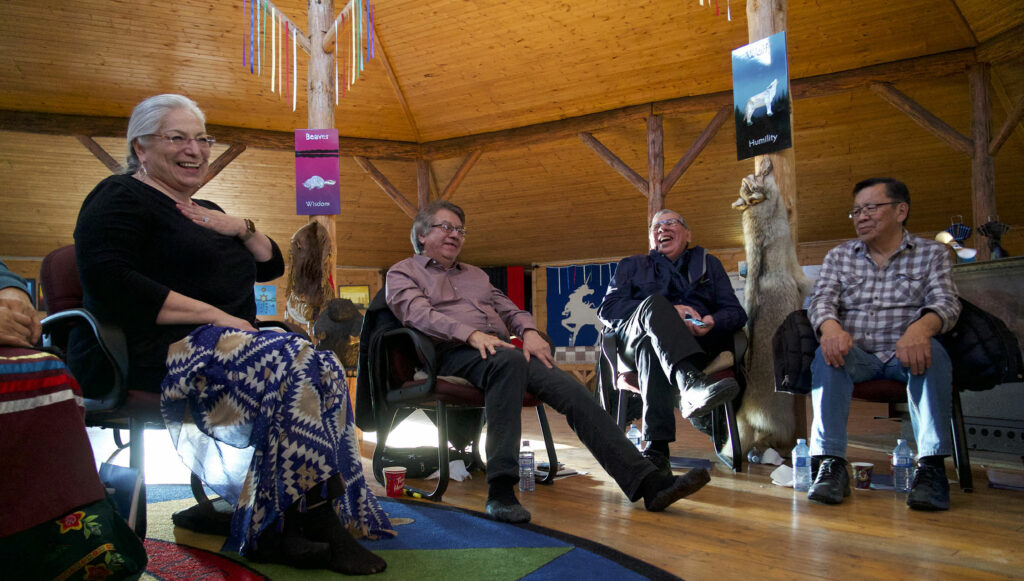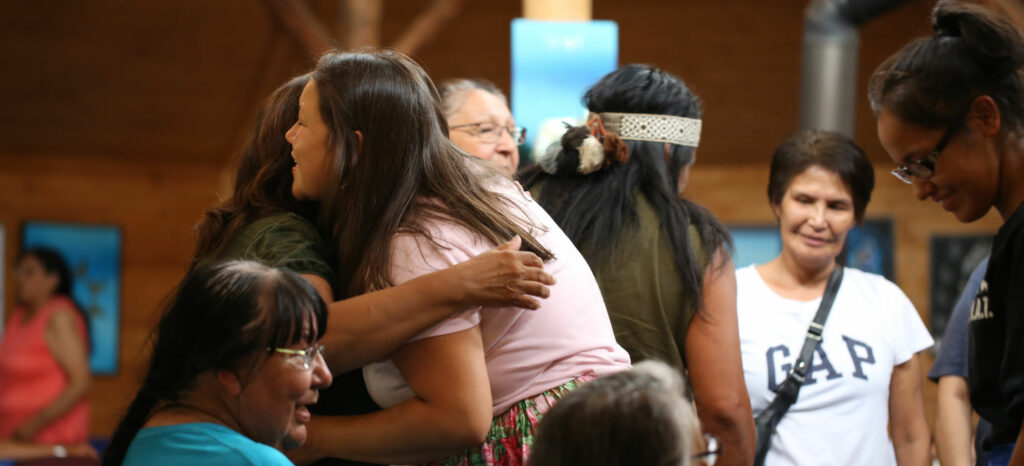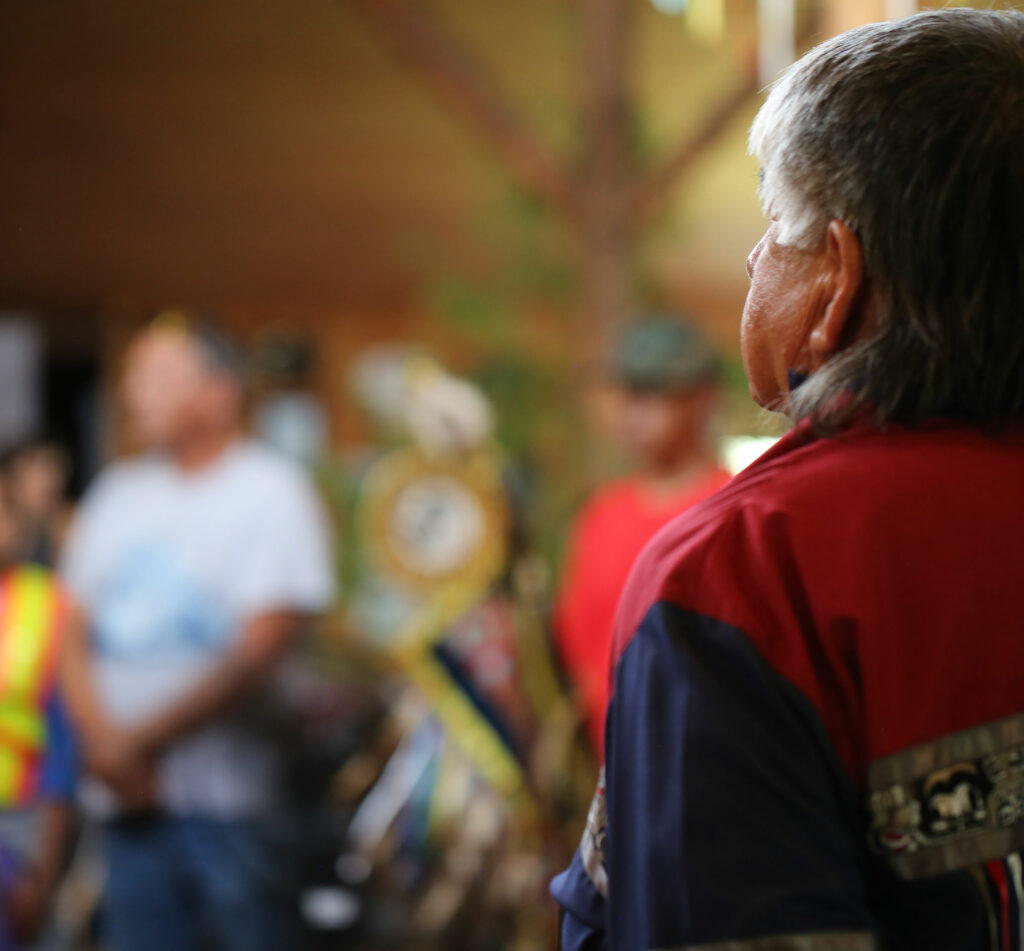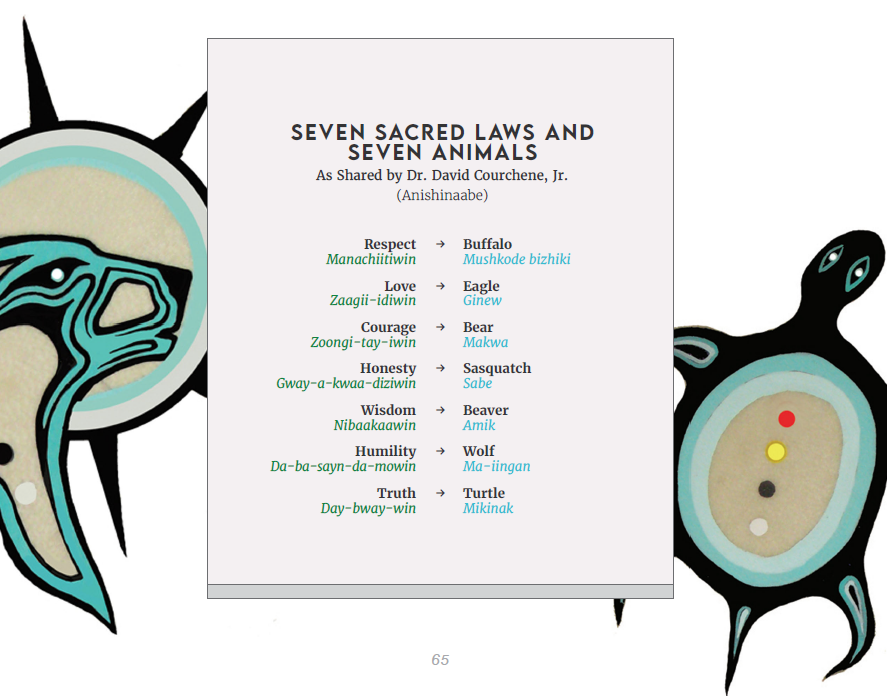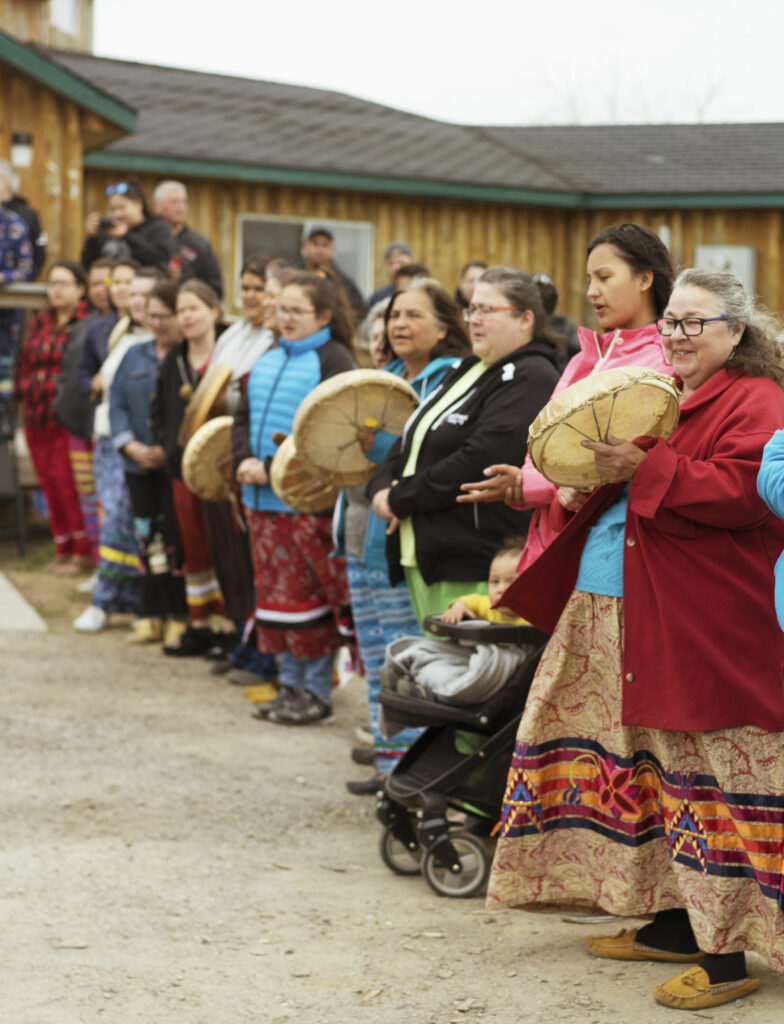Reports

Assembly of Manitoba Chiefs Annual Reports
AMC Annual Reports give readers a complete understanding of our association from the current goals and objectives to the full financial picture.
Read AMC 2023 Annual Report PDF
Read AMC 2022 Annual Report PDF
Read AMC 2020 Annual Report PDF
Read AMC 2019 Annual Report PDF
Read AMC 2018 Annual Report PDF
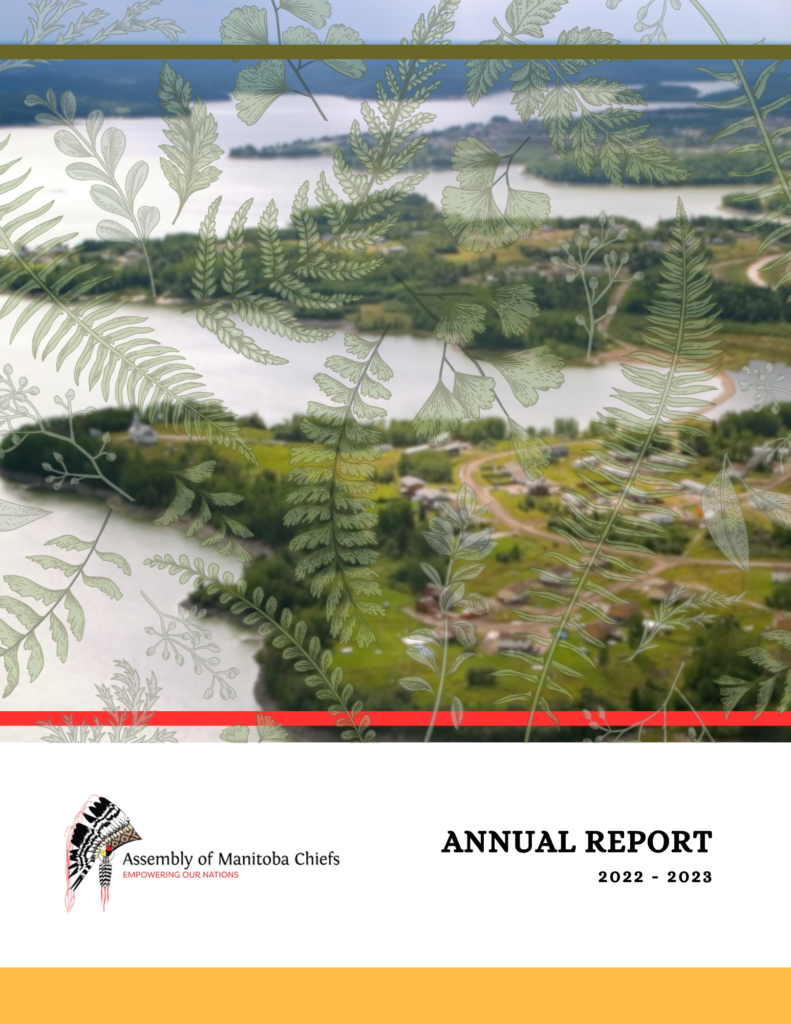
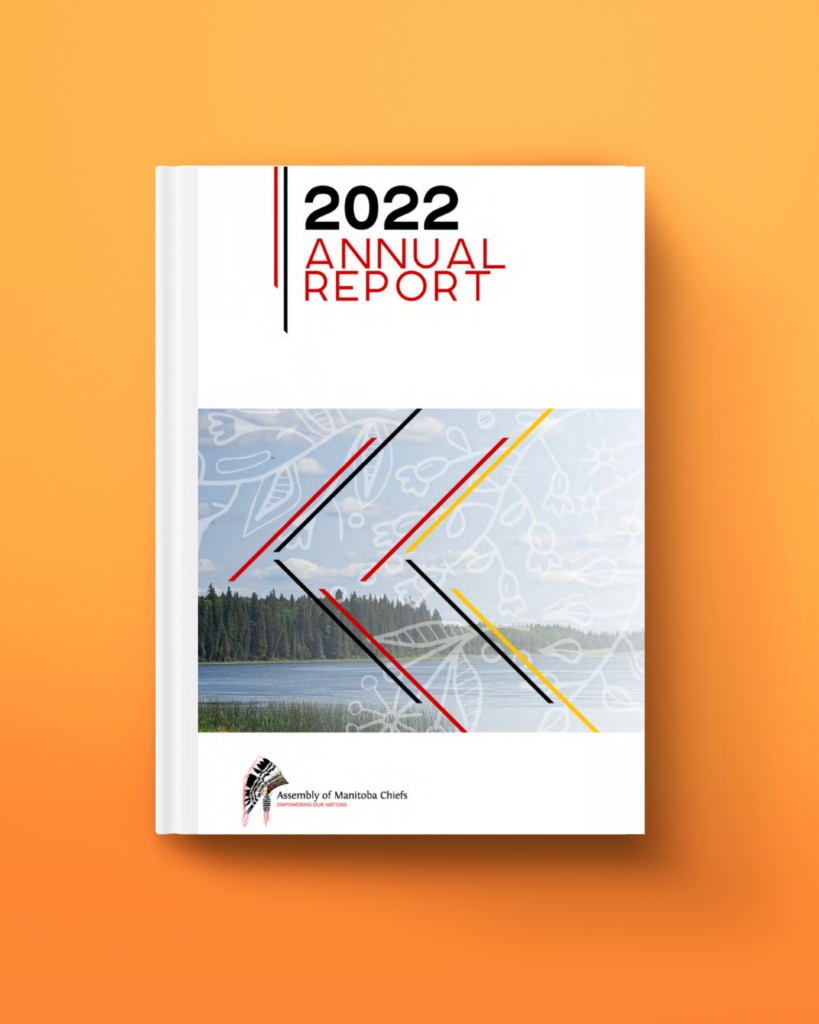
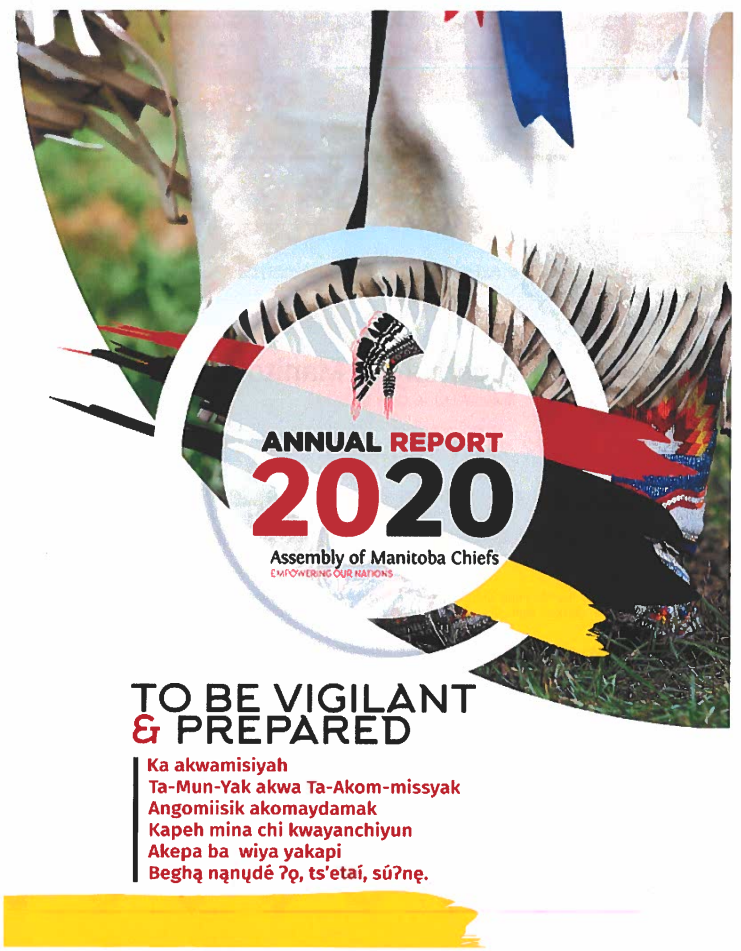
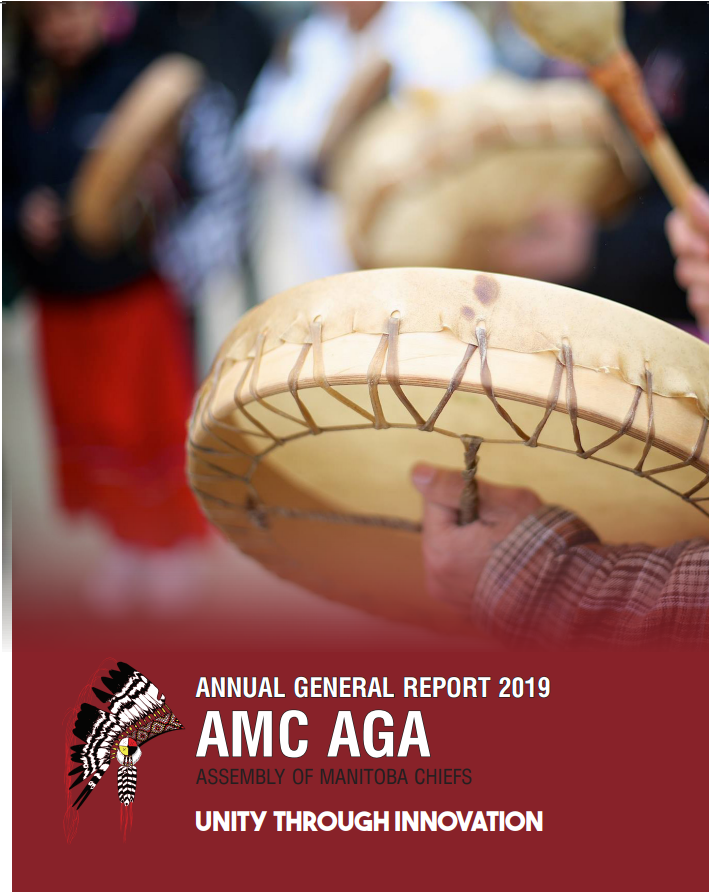
The Implementation of Jordan’s Principle in Manitoba: Final Report
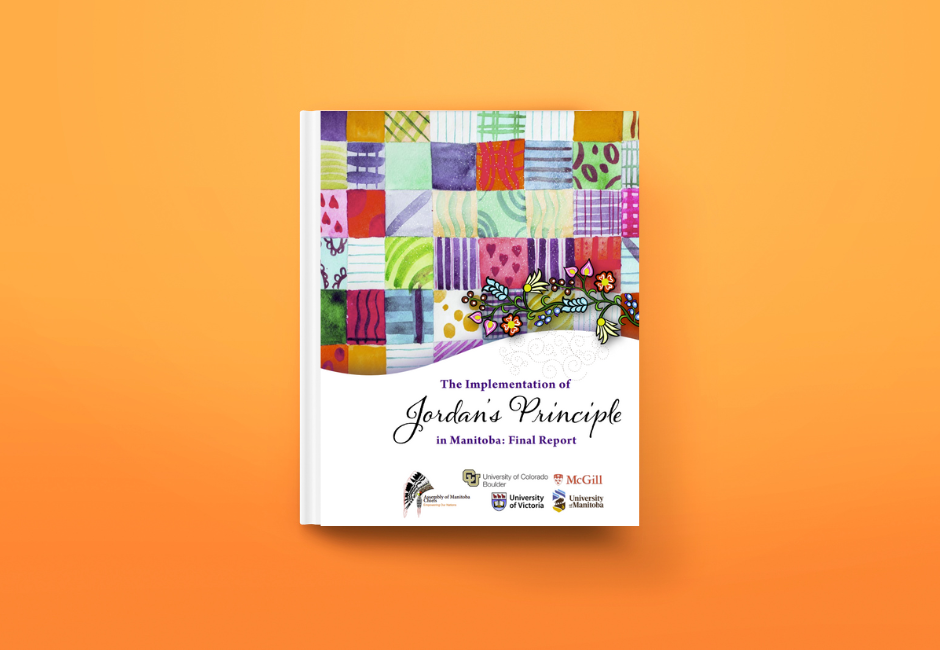
Jordan’s Principle is a legal principle in Canada that ensures timely and appropriate services for First Nation children without exacerbating historical disadvantages. Recent Canadian Human Rights Tribunal rulings expanded its scope, obligating the government to fully implement it across various public services and adhere to strict timelines.
A study commissioned by the Public Interest Law Centre and conducted with the Assembly of Manitoba Chiefs examined the impact of Jordan’s Principle on services for First Nation children in Manitoba. The study described existing services, analyzed Jordan’s Principle programs, identified successes and challenges, explored connections with existing resources, and gathered service providers’ perspectives. Data collection spanned from 2016 to 2021, and the report considered historical and policy contexts.
Read The Implementation of Jordan’s Principle in Manitoba: Final Report
2024-25 Manitoba First Nations Alternative Federal Budget
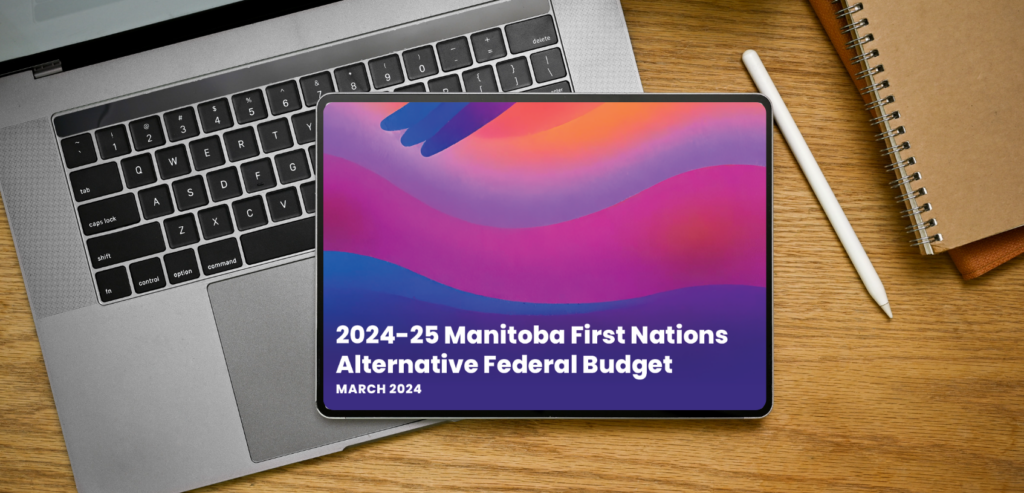
There are troubling signs the Federal Government is not committed to the creation of a new fiscal relationship with First Nations in Manitoba, most recently within the inadequate or non-existent spending amounts allocated to meet Canada’s debts to First Nations in the 2023 Fall Economic Statement. Words are not enough; they must be followed through on with deeds.
The Federal Government continues to lack transparency in how and where funds are spent. Determining actual spending of federal budget commitments and programs within the context of arcane bureaucracies and opaque program reporting is a challenge. Nevertheless, as more information has been uncovered to cost specific investment areas, such as the debt to First Nations education infrastructure, one point is abundantly clear: Canada’s debts to First Nations in Manitoba, in terms of its failure to meet Treaty and fiduciary obligations, is a massive sum, estimated at $35 billion for the 2024-25 fiscal year.
Canada must partner with First Nations in Manitoba to codevelop fiscal policies and programs that meet the needs of First Nations citizens and fulfill Canada’s Treaty and fiduciary responsibilities to First Nations. Canada must work with First Nations in Manitoba to provide support, including sufficient fiscal resources, for action on their self-identified needs and priorities. These include, but are not limited to, landfill searches to repatriate the remains of murdered Indigenous women and girls in accordance with Article 12 of the United Nations Declaration on the Rights of Indigenous Peoples (UNDRIP), funds to upgrade or construct new infrastructure, support to shepherd Health Transformation and self-governance initiatives, actions to address persistent and chronic health needs, expansion of urban transition services, and advancing Child and Family Services (CFS).
Read the full Alternative Budget here:
2023-24 Alternative Budget for First Nations in Manitoba
Read more
Canada has expressed its dedication to forging a new fiscal relationship with First Nations. This commitment could lead to a Manitoba First Nations-driven solution to longstanding underfunding issues and expanding disparities. Manitoba First Nations elders, knowledge holders, and leaders had long anticipated this path to progress. The 1971 document, “Wahbung: Our Tomorrows”, emphasized the importance of respecting Treaty rights, engaging with First Nations on a Nation-to-Nation basis, and promoting fiscal self-determination.
This vision has been echoed in recent times by the Assembly of Manitoba Chiefs and Assembly of First Nations Manitoba Region. The 2023-24 Manitoba First Nations Alternative Federal Budget, requiring a federal contribution of at least $8 billion, is a catalyst for a redefined relationship. This budget would support initiatives like health reforms, addressing chronic health challenges, enhancing urban transition services, and transitioning Child and Family Services to a preventive, First Nations-led model. It is imperative for the Canadian government to view First Nations as the primary architects of their destiny and to grant them authority over funding across various policy domains.
Canada needs to undo previous colonial funding dynamics and sidestep non-First Nations intermediaries in program financing. Through co-developing fiscal policies and programs, Canada can genuinely show its commitment to reconciliation with Manitoba First Nations.
Over the last two years, the Assembly of Manitoba has attempted to initiate a budgetary process with Canada that could lead the way for First Nations in Manitoba wellness and a new fiscal relationship.
AMC tabled an Alternative Budget for First Nations in Manitoba in March 2022, submitted a 2000-word pre-budget submission to the Standing Committee on Finance in October 2022, and then sent out the 2023/2024 Alternative Federal Budget for Manitoba First Nations in March 2023.
I want to thank the Assembly of First Nations Manitoba Region (AFN) for working with the AMC in creating the second Manitoba First Nations Alternative Budget 2023. We tabled this document in Ottawa well in advance before the budget to ensure First Nation voices are heard. It is tough for the AMC to respond to a budget for a “strong middle class” when the notion of “middle class” is tone-deaf to First Nations realities.
Grand Chief Cathy Merrick
Read the full report here.
Families First
Across Manitoba and Canada, Indigenous communities and families are grieving the loss of their daughters, sisters, mothers, cousins and friends. Statistics identify the precise number of Indigenous women who are missing or have been murdered very. According to the 2014 RCMP Report, there were approximately 1,181 MMIWG cases between 1980 and 2012. Manitoba has the third-highest number of incidents of missing and murdered Indigenous women and girls (MMIWG).
This is an epidemic which plagues Canadian society at large. The international community is watching.
Read Families First report pdf
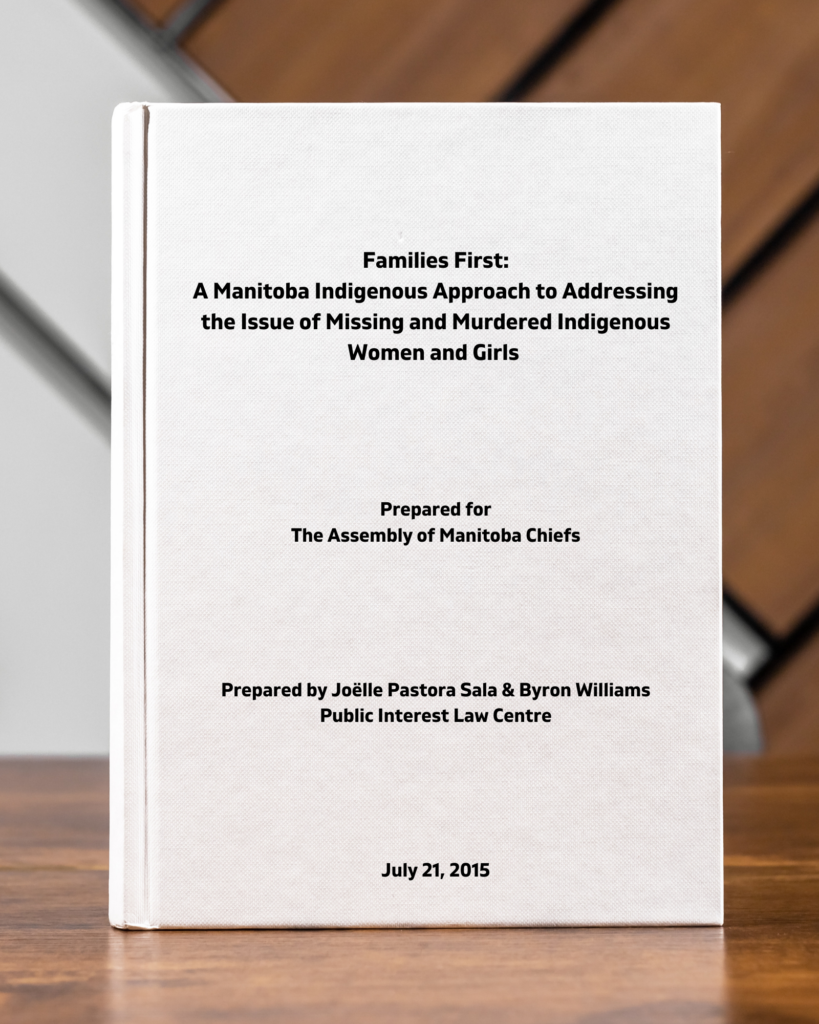
Setting the Foundation for Change
This report is the strategy for the Assembly of Manitoba Chiefs on child welfare reform. It contains the findings from the Assembly of Manitoba Chiefs Women’s Council Strategic Planning Session on child and family welfare held on March 9 and 10, 2018.
The Women’s Council oversees the child and family welfare file at the Assembly of Manitoba Chiefs and developed this foundational strategy to assist in navigating the current Manitoba Child and Family Services landscape and to guide further work on the Assembly of Manitoba Chiefs and Government of Canada Memorandum of Understanding on child welfare reform.
Read the Setting Foundation report pdf
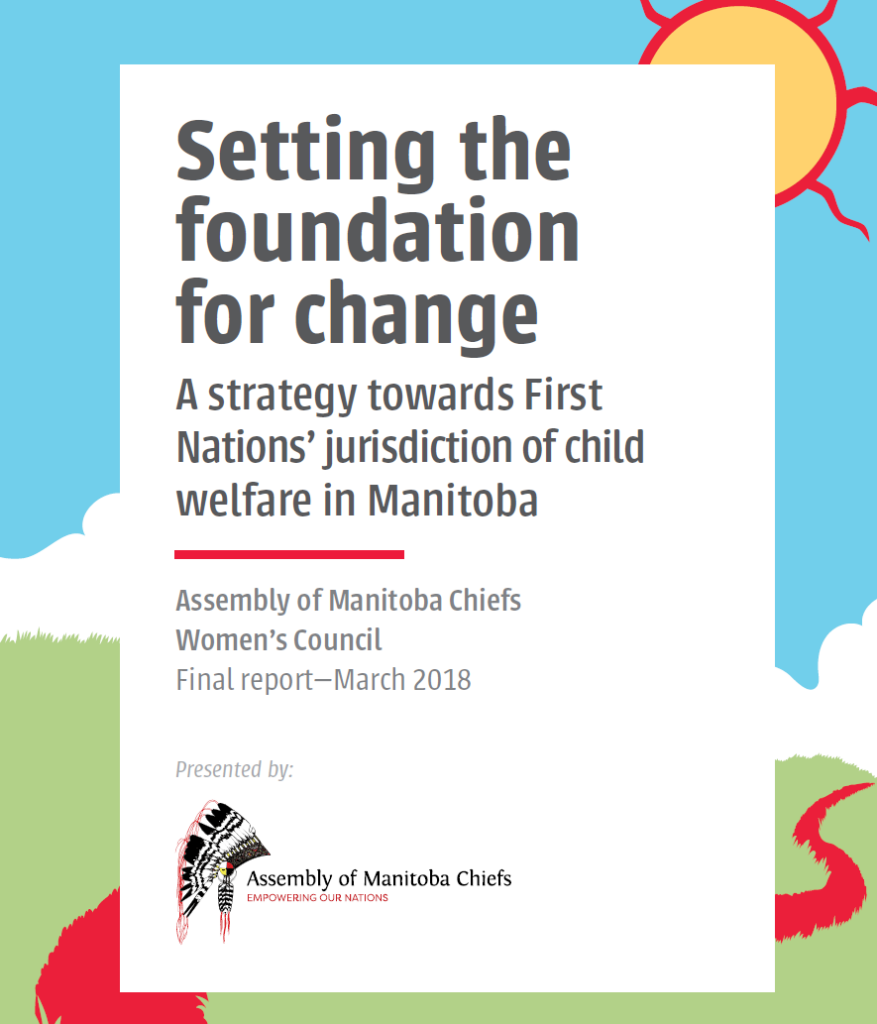
Keewaywin: Our Way Home
Manitoba First Nations Engagement on First Nations Child and Family Services
Keewaywin: Our Way Home, Manitoba First Nations Engagement on First Nations Child and Family Services contains the main findings and recommendations from engagement sessions and meetings with 20 First Nations in Manitoba.
Responding to the highest child apprehension rate in Canada, Manitoba Chiefs-in-Assembly supported a resolution to hold a Special Chiefs Assembly and open forums for concerned First Nation citizens on the topic of First Nation families and child welfare.
The report and its 10 recommendations revealed the current child welfare system in Manitoba is simply an extension of cultural genocide practices found in the residential school system and 60s Scoop. Following review of the report, Manitoba Chiefs-in-Assembly directed the Assembly of Manitoba Chiefs to develop an action plan to implement report recommendations.
Jordan’s Principle is a child-first and needs-based principle that applies equally to all First Nations children resident on or off reserve. It ensures there is no denial or delay for First Nations children in receiving essential public services that are available to all other children by having the government department of first contact pay for the service.
Read Jordan’s Principle Report PDF
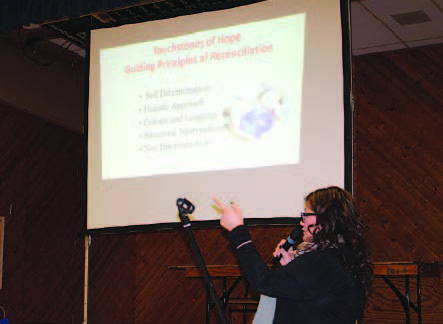
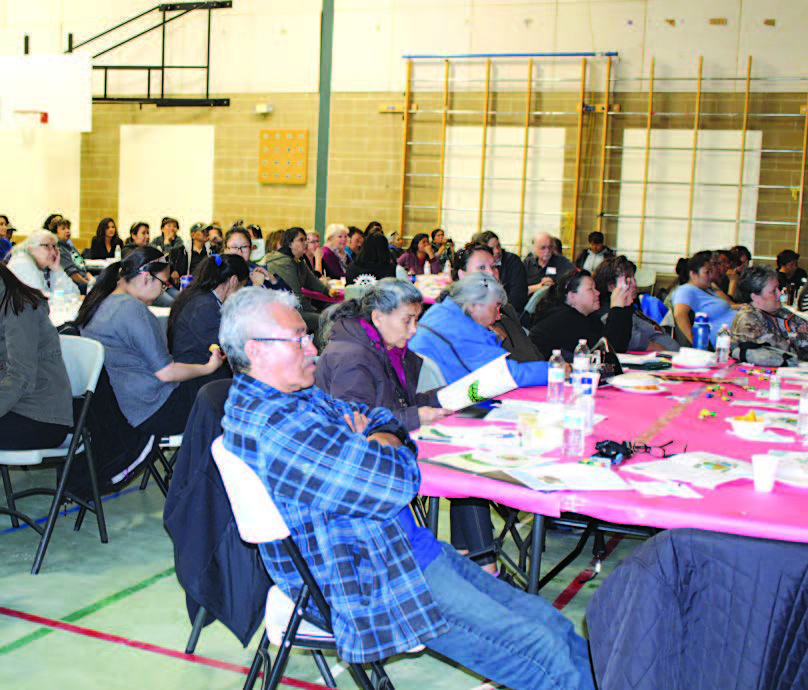
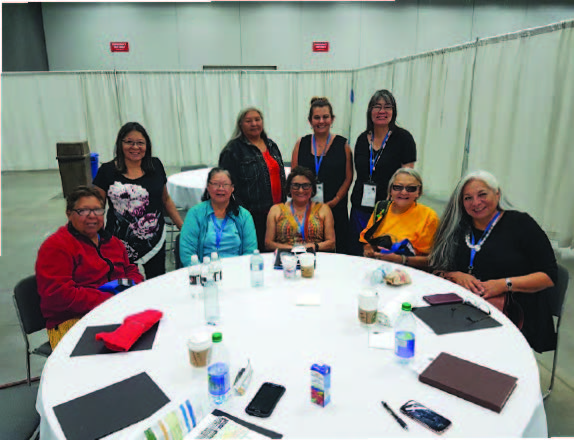
Bringing Our Children Home
In 2014, the Assembly of Manitoba Chiefs explored the child welfare system in Manitoba from the perspective of the people who must deal with the system directly; including children (now adults), parents, grandparents, workers and support service organizations that are established to help the people.
The result of this two-day Open Citizens Forum was the creation of the Bringing Our Children Home report with 10 recommendations that is based on First Nations traditional parenting practices, the protection of cultural identity and prevention rather than apprehension.
Read bringing our children home report pdf
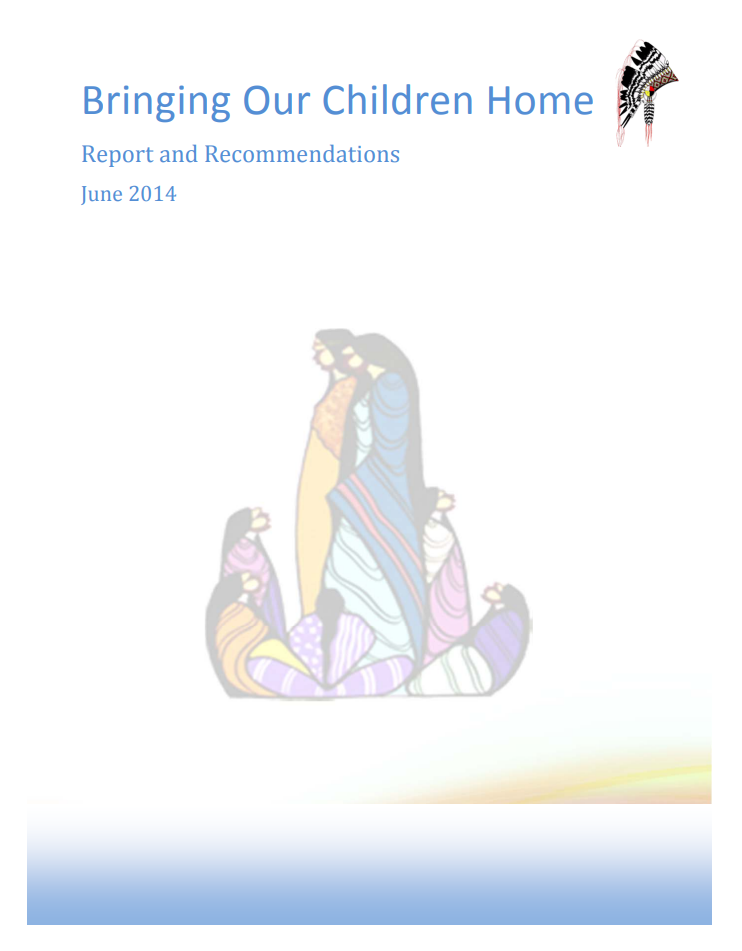
Wahbung: Our Tomorrows
In 1971, the Manitoba Indian Brotherhood, now the Assembly of Manitoba Chiefs, presented their influential position paper Wahbung: Our Tomorrows to Prime Minister Pierre Elliot Trudeau and the Government of Canada.
Manitoba First Nations along with our brothers and sisters in other provinces including Alberta First Nations’ famous Red Paper also presented policy papers that not only rejected Trudeau’s controversial White Paper that was written in 1969, but more importantly expressed our relatives’ views on the direction they wanted to take to become self-determined.
Our First Nations Leaders often reference Wahbung: Our Tomorrows and respect what our leaders of those days wanted to accomplish. The AMC upholds the views and recommendations outlined in Wahbung: Our Tomorrows and use the position paper as a guideline in our leadership.
Read wahbung: our tomorrows report pdf
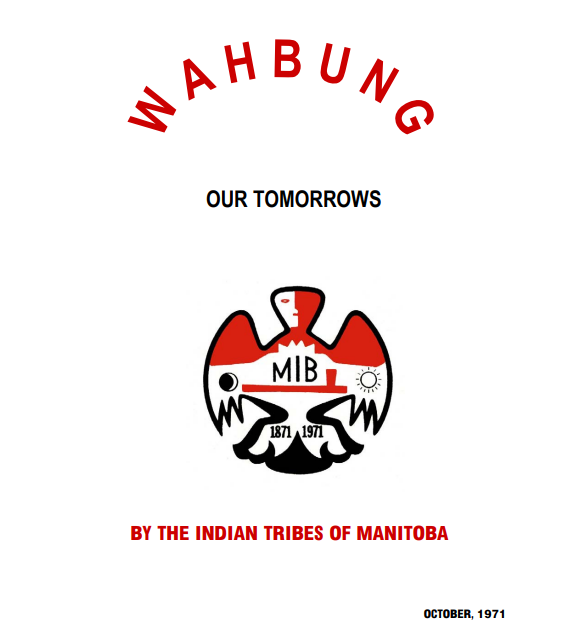
Wahbung: Our Tomorrows Imagined
Visions for the Next 50 Years
The Wahbung: Our Tomorrows Imagined initiative seeks to re-energize the movement towards the desired future articulated by Wahbung: Our Tomorrows.
Read the full report here: Wahbung: Our Tomorrows Imagined Report pdf
Preview:
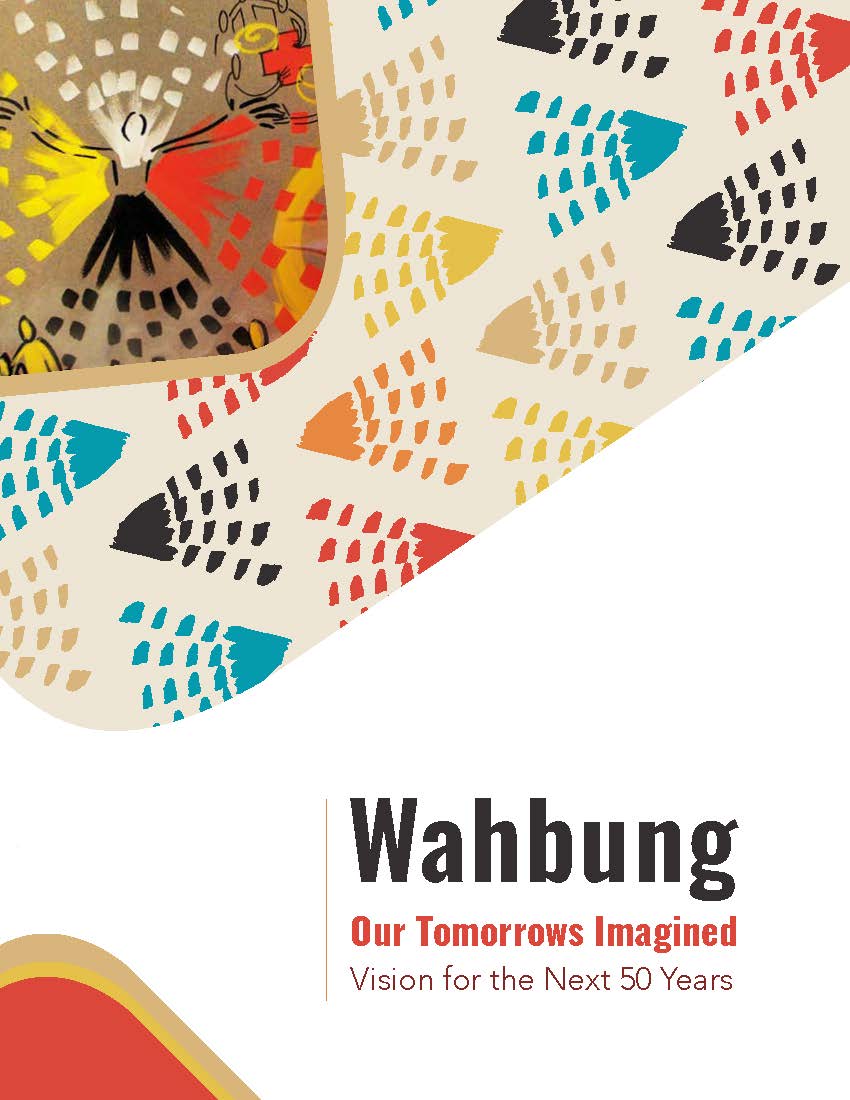


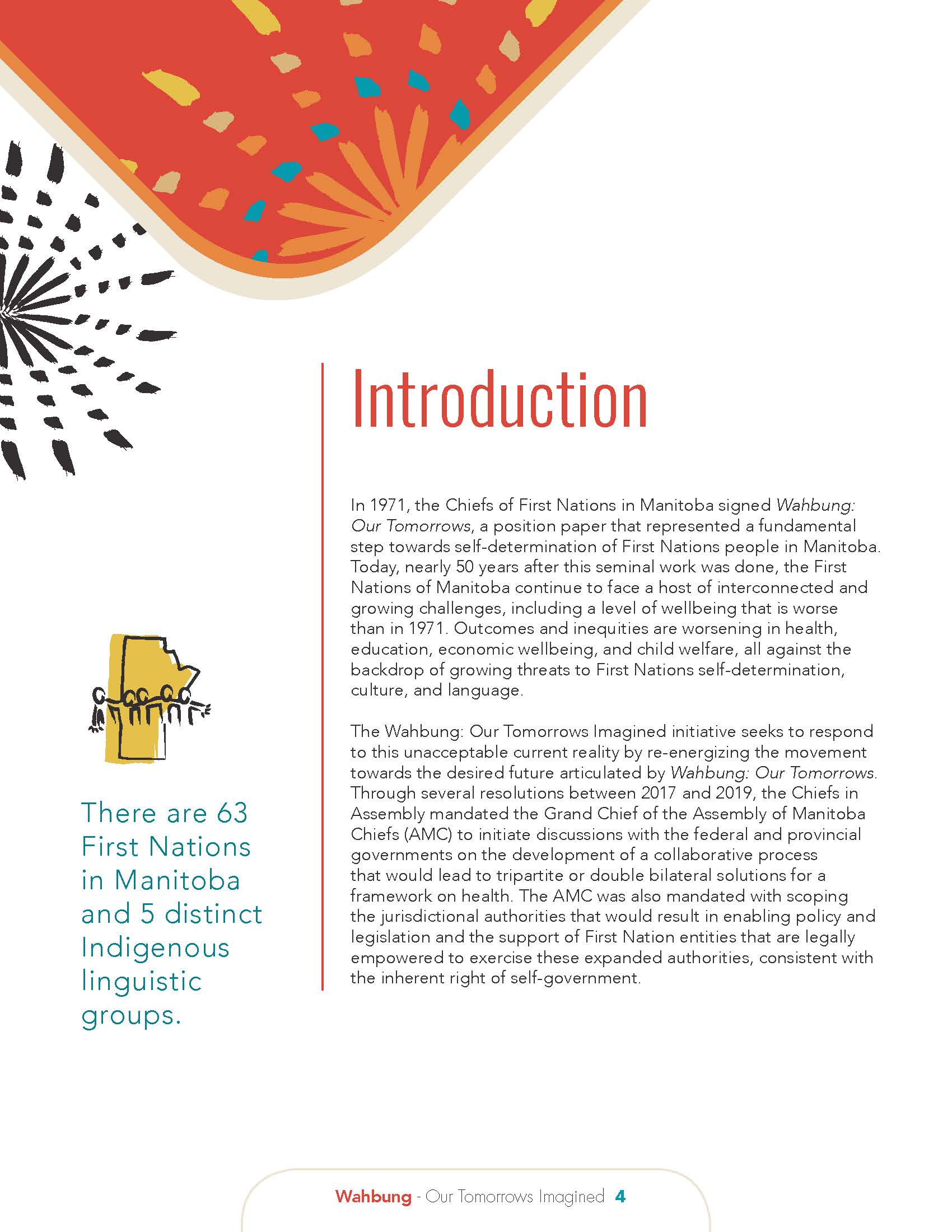
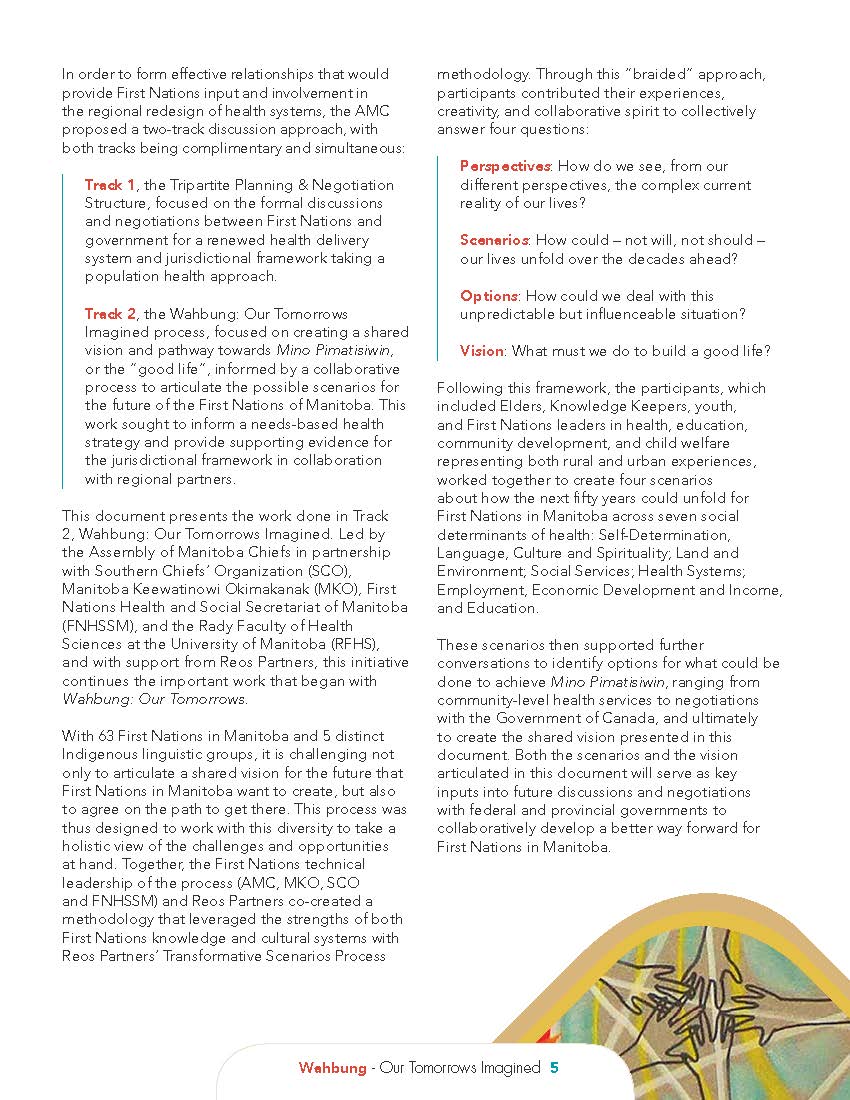
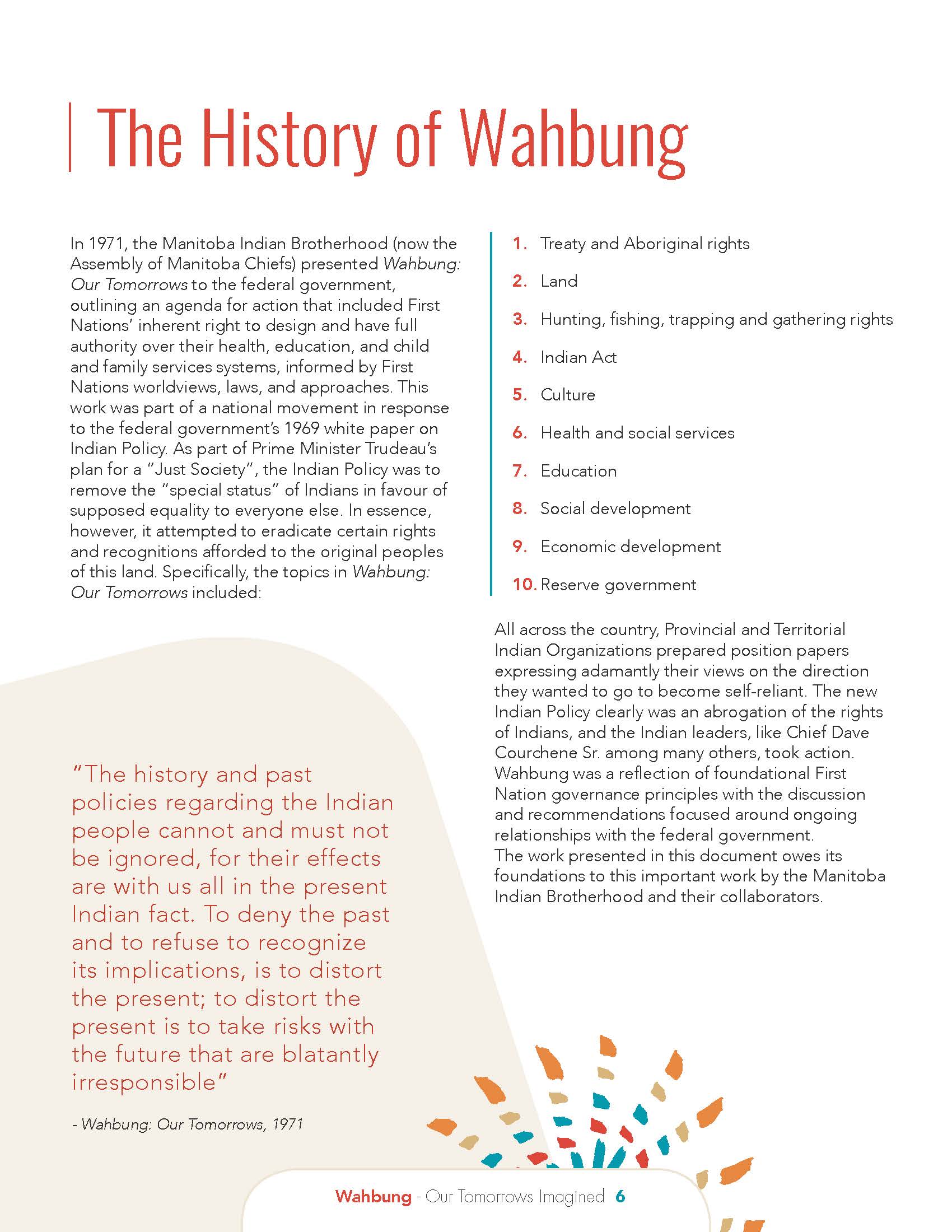
Wahbanung The Resurgence of Our People: Clearing the Path for Survival
50 Years After Wahbung: Our Tomorrows…
Wahbanung The Resurgence of Our People: Clearing the Path for Our Survival
Wahbung means “Our Tomorrows”, and its root word, Wahbanung, refers to “Going Back to the Beginning” in Anishinabemowin. When we use our language at the beginning of our efforts, we acknowledge the Creator right away with the language given to us, and we notice to non-Indigenous People that the source of our laws and knowledge comes through our languages and our relationship with the Creator.
The process of writing Wahbanung was led by the Pipe, rattle, drum and water ceremony. Our knowledge belongs to everyone, shared by our Knowledge Keepers, as inspired by the Spirit through our ceremonies. We protect our way of life by sharing it, just as we protect our language by speaking it.
Women are the foundation of our families and communities. They are life givers and are gifted to be water carriers. Water connects them to Mother Earth and Grandmother Moon. Women ensure customs and traditions are passed on. They provide guidance to the girls by providing them with responsibilities inside the home. These responsibilities prepare the girls to enter womanhood so that they can learn to provide care for their own families later in life.
FLORENCE PAYNTER (ANISHINAABE) AND PHILIP PAYNTER (ININIWAK)
Read Wahbanung The Resurgence of Our People Full Report
Read Wahbanung The Resurgence of Our People Calls to Action
